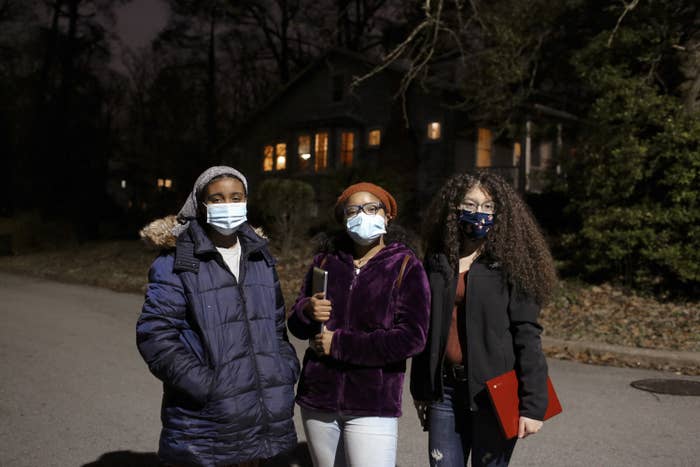
1. Accelerating the Nation’s Largest Broadband Adoption Program
For more than a decade, Comcast has focused on connecting millions of low-income families to the Internet through Internet Essentials, the largest and most comprehensive low-cost Internet adoption program for low-income Americans. Since 2011, Comcast has connected millions of people to the Internet at home, donated tens of thousands of free laptops to students and families across the country, and invested $700 million in digital literacy, skills training and awareness programs that have reached 11 million people.
Comcast is nowdoubling the program’s Internet download speed to 50 Mbps and increasing the upstream speed to 5 Mbps for all new and existing customers at no additional cost. To receive the increased Internet speeds, existing customers will not need to do anything . . .
2. Launching 1,000 Lift Zones by December 2021
Comcast recently announced a multiyear program to launch more than 1,000 Lift Zones in community centers across the country by working with its network of thousands of nonprofit partners and city leaders. So far, Comcast has installed several hundred Lift Zones to further address the homework gap. Lift Zones provide safe spaces for students to access free WiFi so they can participate in distance learning and do their schoolwork. Comcast is now accelerating that timeline to connect 1,000 Lift Zones by the end of this year – more than a year ahead of its original plan.
“Transforming our Boys & Girls Clubs into Lift Zones has made a huge difference in the lives of the students we serve in Philadelphia,” said Lisabeth Marziello, President & CEO, Boys & Girls Clubs of Philadelphia . . .
3. Investing in Education and Equity-Focused Organizations
Comcast is also expanding its targeted philanthropic investments in organizations working to increase digital equity and contributing to the collective action needed to drive sustained change. These new organizations and investments are focused on creating greater pathways to opportunities for communities of color, particularly in media, technology, arts, and entrepreneurship.
Since last year, Comcast has committed more than $40 million in cash to education and equity-focused partners that share the company’s goals of advancing social justice and equality. . .As part of the $40 million, Comcast today announced $3.5 million in commitments to partners including CodePath, Genesys Works, Jobs for the Future, ...Together, Comcast and its partners are helping more people of color gain the education and critical workforce development skills needed to access career opportunities in media and technology.
"Comcast’s investment in CodePath will help us double our impact to reach nearly 5,000 students and over 60 university partners in 2021. As disadvantaged communities struggle with mass job losses in the wake of the pandemic, our courses are one of the few holistic programs placing thousands of underrepresented minorities into our nation’s most competitive technical roles,” said Michael Ellison, Co-Founder and CEO of CodePath. “Through partnerships with CodePath and many other dedicated organizations, Comcast continues to demonstrate its commitment to creating tangible and systemic change, while providing new opportunities for people of color in the tech sector and beyond.”
For more information about Internet Essentials and Comcast’s commitment to education and digital equity, visit https://corporate.comcast.com/education.
Comcast Has Agreed To Increase Its Low-Cost Internet Speeds After Pressure From Student Activists
Posted on February 2, 2021, at 7:55 p.m. ET

In a victory for student activists pushing to close the digital divide, Comcast announced today that it will be increasing speeds for its low-cost Internet Essentials plan, which some families have said wasn’t fast enough for online learning.
Since the pandemic forced schools online last spring, students have been arguing that the speeds Comcast offered at a discount to low-income households — 25 Megabits per second (Mbps) download and 3 Mbps upload — weren’t sufficient for remote classes, especially in homes with multiple people using the internet at the same time. Comcast said it will increase those speeds to 50 Mbps and 5 Mbps, respectively.
While Comcast’s increase did not fully meet the students’ demands, the teenagers were nonetheless in a celebratory mood at a press conference held outside Baltimore City Hall on Tuesday afternoon. . .
Comcast announced the news in a press release on Tuesday morning. “To receive the increased Internet speeds, existing customers will not need to do anything,” the company said. “The new speeds will be rolled out nationally beginning March 1.”
In response to outcry from students and families, Comcast has repeatedly argued that the Internet Essentials speeds it had offered since March 2020 met the Federal Communications Commission definition of high-speed broadband and should have been sufficient for multiple, concurrent videoconferences.
“This change is an acknowledgment that Comcast recognizes and most likely has recognized since the beginning that its service was inadequate, and not nearly enough for what people actually needed,” Abid said at Tuesday’s press conference.
The students plan to continue pressuring Comcast for additional changes, such as making public Wi-Fi hotspots completely free for everyone. Members of Baltimore’s City Council also said they would continue to try to eliminate Comcast’s near monopoly in Baltimore and establish municipal broadband.
“Today Comcast acknowledged what these students have said for months: Internet Essentials is not fast enough, and they must do better,” said City Councilmember Zeke Cohen. “Let’s be clear: we will continue to fight to make the internet into a public utility. We will push the FCC and the Biden administration to invest in this critical infrastructure and eliminate the digital divide.”
FCC Acting Chair Jessica Rosenworcel has publicly questioned whether the current definition of broadband is fast enough to support the needs of American households, but the agency did not respond to requests for comment regarding whether it has plans to change its guidelines. . ."
Comcast’s decision to increase the Internet Essentials speeds comes as the company faces pressure from lawmakers over its plan to introduce a 1.2 terabyte cap on data usage for home internet subscribers. When the cap is rolled out, customers who go over their limit will be charged $10 for every 50 GB up to a limit of $100 for regular customers and $30 for Internet Essentials customers. Comcast has said only a small percentage of “super user customers” typically use such a “massive” amount of data, but larger households with multiple people streaming, videoconferencing, and downloading games and videos might find themselves exceeding that limit.
After members of Congress and state legislatures pushed back against the cap, which could result in fees for families who are working and learning from home during the ongoing COVID-19 crisis, Comcast decided to delay implementation. The company now says new charges won’t go into effect until July 2021.
For now, the increase to Internet Essentials speeds is a big win for the students who spent hundreds of hours drafting petitions, speaking at hearings, and organizing press conferences. “There’s a lot of work to be done,” said Vasquez. “But it’s a step in the right direction.”


No comments:
Post a Comment